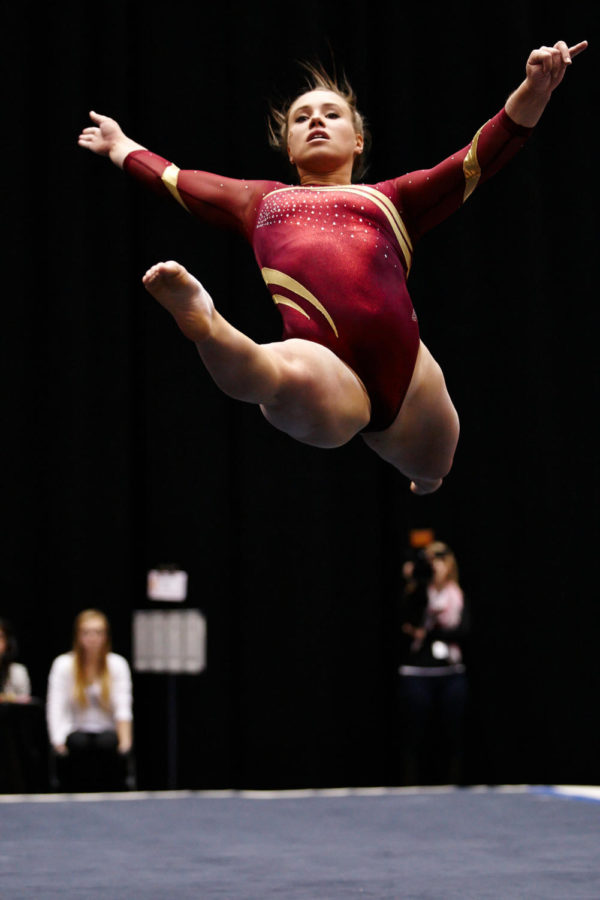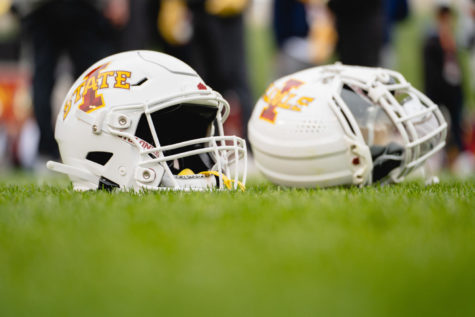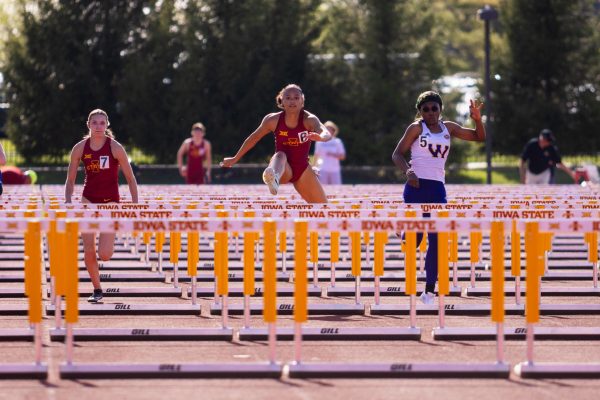Mental toughness: The intangible necessity in gymnastics
February 24, 2015
Every physical aspect of the sport of gymnastics remains constant from practice to the competition. The beam is the same width, the bars are at the same height and one’s physical abilities are unaltered. There is no defensive aspect to affect a routine.
Yet, still nearly every gymnast who participates in competitive gymnastics is introduced to a new, intangible obstacle upon preparing for a routine — an assault on one’s own mind.
In the sport of gymnastics, one may perfect an entire routine numerous times in the practices preceding a competition. Despite this physical assurance, however, one may still commit an uncharacteristic mistake due to an inability to escape one’s own thoughts. As the ISU gymnasts recognize they are all competing against themselves in their sport, they in turn realize that the mental facets of their sport are significantly heightened as a result.
“All of us have all of the [physical] skills [in competitions], it’s just the mental part of whether we are going to hit or not,” said freshman Kelsey Paz. “That’s probably the most difficult thing with gymnastics.”
Throughout the course of this season, Iowa State has aptly demonstrated its ability to produce successful scores when it avoids mental mistakes. At Beauty and the Beast on Jan. 18, when the Cyclones put up a season-high total of 195.950, the team did not use a score lower than 9.675. The team avoided mental mistakes that could have translated into missteps in the various events.
The Cyclones have become cognizant of the fact that they can execute on any routine at a high level, as they have experienced in practice. It requires additional effort, however, to overcome internal mental adversity when performing in high-pressure situations during a competition.
“I think everyone [mentally] approaches the meet in a different way,” said junior Sammie Pearsall. “Whether it’s reminding yourself to really enjoy yourself in the moment or just reminding yourself that you know how to do the routine, it’s definitely different for everybody.”
Although overall mental approaches may differ, one common, possibly unexpected trend has been adopted by the ISU gymnasts in aid of the ongoing mental battle.
“I just try to not think about gymnastics [before a routine],” Paz said. “I have to think about having fun and laugh before a routine because if I get too into my head, it gets too serious. It’s just gymnastics.”
When all goes smoothly, when routines are executed and mistakes are averted, mental confidence may come naturally for the ISU gymnasts. However, when mishaps occur and the dominoes begin to fall in the wrong direction, mental toughness becomes more difficult to grasp.
Perhaps no situation introduces this adversity to such an elevated degree as when one falls during the course of a pre-structured routine, such as on the balance beam or the uneven bars. One must overcome an internal sense of defeat in order to finish the performance with the same motivation with which one started.
“You have to completely drop [the mistake] at that time, refocus and just start over,” said senior Caitlin Brown. “And what’s going on in your head is that you have to finish it perfectly to make up for the mistake you already had. It’s a lot of pressure and frustration in battling back from that.”
Even after a mental lapse that may lead to a fall, the remainder of the routine still may hold a greater significance than it seems at that time. As Iowa State has experienced first-hand, if multiple falls occur in one event, all but one of those scores will still be tallied as part of the overall event score. Thus, it is paramount that one strives for perfection after a misstep in order to achieve all potential remaining points.
Physically, the Cyclones have manifested their capability to execute routines on a high level and attain those high scores. However, the ISU gymnasts have discerned that their battle is not against their physical bodies but against their minds.
“It’s 100 percent mental, 150 percent mental,” Brown said. “If there’s a battle, it’s always a mental battle.”

















